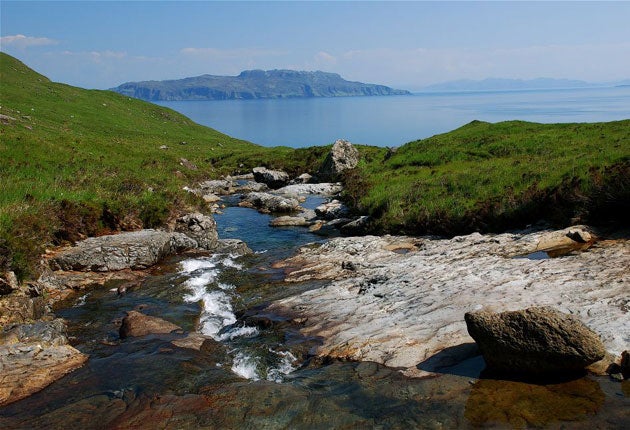Rum deal in store for Scots islanders
Feudal tradition of land ownership set to be swept away after two centuries

For nearly 200 years, the people of the remote Scottish island of Rum faced an uncertain future. They were little more than guests in a rugged, windswept corner of the Inner Hebrides, and were always forced to leave if they quit the employ of the island's owner. But later this month, the current 23 inhabitants of Rum are expected to vote in favour of overturning centuries of feudal tradition by taking control of the island themselves. In what will be the smallest community buy-out in Scotland to date, they hope to be able to attract new settlers and eventually swell the population to about 70.
After 1826, when the indigenous population of 350 was cleared and packed off to Nova Scotia to make way for a sheep farm, the island was run as a single estate. Anyone wishing to live there had to work for the overlord. In 1957, Rum was acquired by the Nature Conservancy Council, now Scottish Natural Heritage (SNH), from the family of a Lancashire textile tycoon and turned into a wildlife reserve. Bird lovers now flock to the 40-square-mile island to watch white-tailed sea eagles and the world's largest breeding colony of Manx shearwaters.
This month, residents will head to the ballot box after the Scottish Parliament, with the consent of SNH, said it was ready to transfer £250,000 of land and property to the community.
Fliss Hough, of the Isle of Rum Community Trust, believes the vote will be 100 per cent in favour of the buy-out. The neighbouring isles of Knoydart and Eigg were taken over following similar ballots of their residents in the 1990s.
"It is very important because it gives people security for the future," said Ms Hough. "Most live in tied homes and most of the land is owned by SNH, which has no facility for buying or selling land so no development can take place. Many people have left over the years because there is nowhere to live and no opportunity for the community to grow. Rum is a wonderful place. It can get a bit midgy in summer, but it is extremely beautiful."
Under the deal, the islanders would control property in their only village, Kinloch, including the shop, tea room, community hall, holiday cottages and croft land. However, the imposing Kinloch Castle, completed in 1900 for the laird George Bullough, will remain under the control of SNH.
Join our commenting forum
Join thought-provoking conversations, follow other Independent readers and see their replies
Comments
Bookmark popover
Removed from bookmarks